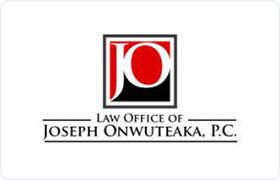Hondo Real Estate Other Lawyer, Texas, page 2
Sponsored Law Firm
-
 x
x

Click For More Info:
-
Law Office of Joseph Onwuteaka, P.C.
8323 Southwest Fwy Suite 650 Houston, TX 77074» view mapSlip & Fall Accident Fighting Fearlessly For Your Rights
I'm committed to providing experienced and tenacious legal representation. I will fight for the best possible outcome in your case & won't give up, even when things get tough.
800-960-3430
Includes: Commercial Leasing, Commercial Real Estate, Condominiums, Conveyancing, Housing & Urban Development, Premises Liability, Residential Real Estate, Title Insurance
Debra Montez
Commercial Real Estate, Intellectual Property, Environmental Law Other, Administrative Law
Status: In Good Standing Licensed: 41 Years
Lemuel B. Trulove
Commercial Real Estate, Oil & Gas, Wills, Business & Trade
Status: In Good Standing Licensed: 41 Years
Eino Zapata
Commercial Real Estate, Real Estate, Wills, Estate
Status: In Good Standing Licensed: 51 Years
Diana Christine Habenicht
Business & Trade, Commercial Real Estate, Wills
Status: Inactive Licensed: 23 Years
Robert Ramirez
Commercial Real Estate, Litigation, Family Law, Business & Trade
Status: In Good Standing Licensed: 42 Years
 Joseph Onwuteaka Houston, TX
Joseph Onwuteaka Houston, TX Practice AreasExpertise
Practice AreasExpertise
